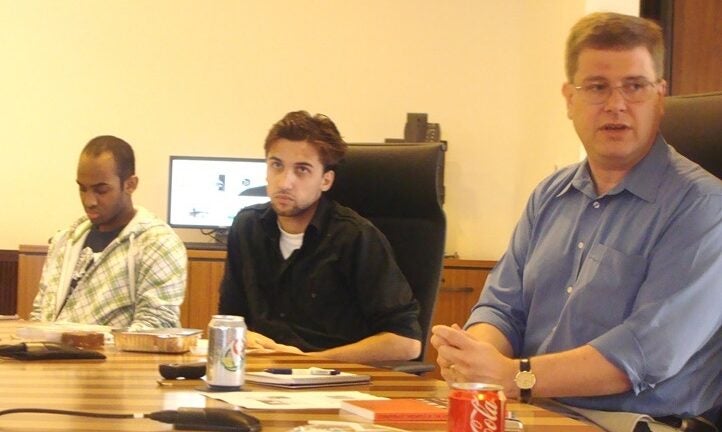Dialogue Series, Race & Society, Regional Studies
Conspiracy Theories in the Arab World

Matthew Gray, Senior Lecturer at the Center for Arab and Islamic Studies, Australian National University in Canberra, lectured on “Explaining Conspiracy Theories in the Arab World” on January 11, 2011.
Gray’s lecture was based on work conducted for his recent book on this topic, Conspiracy Theories in the Middle East: Sources and Politics (Routledge, 2010). He argued that because “conspiracy theories are real political language,” they are worthy of serious study. Although the proliferation of unverified stories is a social phenomenon that can easily fall into the delusional and exaggerated, they are nonetheless important indicators of social fears and apprehensions and can reveal underlying ideas often ignored by mainstream discourse.
The first daunting task of studying the phenomenon, Gray said, is to define what a conspiracy theory is. This is difficult because such theories sometimes turn out to be true or are widely believed to be true. In general terms, “a conspiracy theory almost always involves absolute secrecy and it nearly always is negative and disadvantages people. It often sounds like it is using a rational argument, but once you scratch beneath the surface, there is either a flaw of logic or a factual error.” As such, conspiracy theories flourish because they tend not to be falsifiable.
There are three main areas that enhance the conditions in which conspiracy theories flourish; these are historical, ideological, and state-society drivers. Gray argued that agreement on certain historical narratives can build a support network between the conspiracy theorist and the receiver. “History is important for laying the foundations of a conspiracy theory” and allows for a reappraisal of historical values and impacts and thus is a means of political engagement.
Ideology is a second main driver for conspiracy theories in Gray’s view. He explained that ideologies such as state-led development, Arab socialism, Arab nationalism, democracy, and Islamism, have failed to capture the imagination of the majority of people and, so, in the absence of a compelling ideology, conspiracy theories are rife.
The third factor revolves around problems in the state-society relationship in the Arab World. Gray described the Middle East as a place where opaque governing structures operate at the elite level of politics. It is an area where complicated bureaucratic networks and repressive state institutions often thrive. Under these conditions, Gray noted that “societies have trouble understanding how people in power operate” and this fosters the perfect environment for conspiracy theories to emerge.
Sometimes the reverse is true and conspiracy theories can suit those in positions of power. Indeed, “the state and the political elite can actually be the narrators of conspiracy theories,” he said. State-endorsed conspiracy theories can divert attention from other explanations or other pressing issues. “Conspiracy theories can help in the construction of a counter fact to confuse or disorient people. People get bombarded not just with factual information, but with bias, with conspiracy theories, and after a while, especially in a strict authoritarian context, it becomes difficult to know what the truth is, what is safe to say and not say,” explained Gray.
Concluding the lecture, Gray explained that conspiracy theories will continue to flourish in the wake of global television stations, new media, and communication technologies. “The paradox of communications technology is that just as you can spread fact and education very easily over satellite TV and the internet, you also get a fragmentation of knowledge and authority and it becomes very difficult for a lay listener or viewer to differentiate between someone speaking with formal, traditional authority and someone merely claiming to have authority,” he said.
Article by Suzi Mirgani, CIRS Publications Coordinator